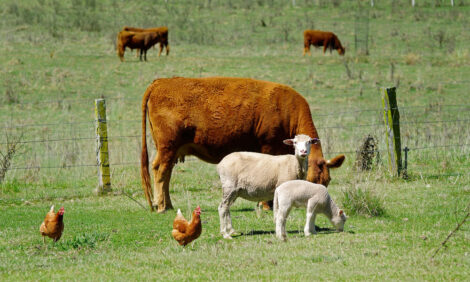



USDA Crop Report to Be Watched Closer
US - Wet and cold weather over much of the country in October put a dent in corn and cotton yields, but the Agriculture Department is still forecasting corn yields will be the highest on record and total corn production will be the second highest on record.USDA released its November crop report yesterday, and economists with the American Farm Bureau Federation said estimates were generally in line with what analysts expected. Because of delayed harvest over much of the corn, cotton and soybean producing areas, USDA’s December and January crop reports could show some significant adjustments compared to November, which is unusual. Usually there is little change between the November and January crop reports.
“Because of the late harvest, I would expect to see another drop in corn production in the January report. USDA’s January crop report will be watched a lot closer than normal because of the late harvest,” said Terry Francl, AFBF senior economist.
“The real concern over much of the country for corn is not yields, but quality and drying costs due to the wet weather. Particularly in Illinois, there are report that yields are good, but drying costs are up which will put a real crimp on farm income,” Dr Francl said.
USDA’s November crop report showed a 1 per cent drop in corn production from the October forecast and a 2 per cent jump in soybean production, compared to October. The biggest change was in cotton production, which dropped 4 per cent from the October forecast.
Megan Provost, AFBF southern crops economist, said the drop in cotton production can be solely attributed to lower yields, particularly in the Delta region of Mississippi, Arkansas and Missouri which have been hammered with wet weather over much of the October harvest. Texas cotton producers also expect lower yields due to the impact of cool wet weather on a late planted crop.
“This is the lowest cotton yield in five years, but it is still a decent yield when compared to historical records,” Dr Provost said.











